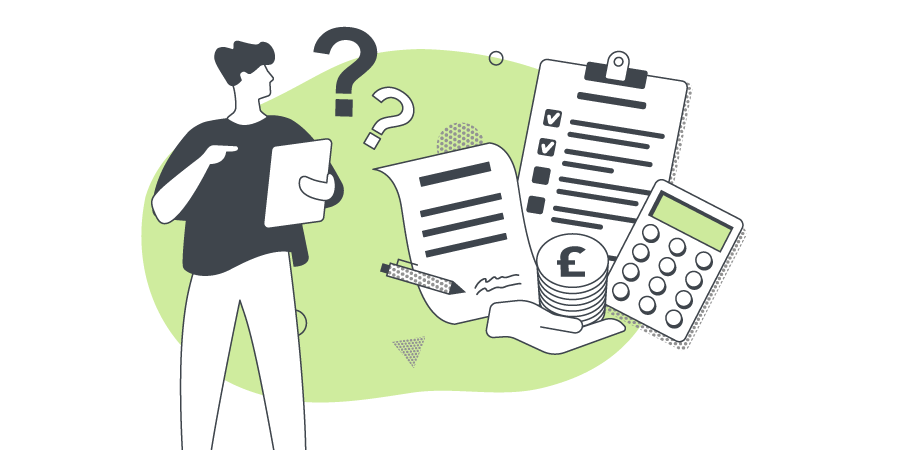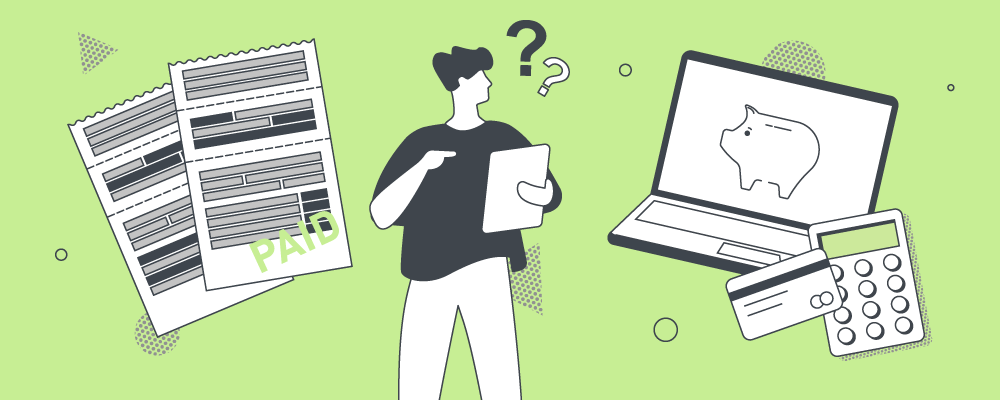
Buying a home is a big investment, and getting your finances in order can feel daunting – especially if you’re a first time buyer. You might be wondering where to start, who to speak to regarding financial advice for buying a house and how to determine what you can afford.
In this guide, we break down how to get your finances in order, including determining your budget, preparing for your mortgage and what costs you can expect.

Understand what you can afford
Before you start viewing properties, make sure you understand what you can afford. Having a clear idea of your budget can make it easier to focus on homes that are suitable, saving you time during your search.
Calculating your budget and mortgage affordability
If you’re thinking about buying a home, it’s important to consider what feels comfortable for you financially. Taking the time to plan your budget can help you make informed decisions and reduce potential financial stress down the line.
Factor in how much you can afford to use for your deposit, as most lenders ask for 5-10% of the property price. It’s also important to consider your monthly expenses once you move in, including your mortgage payments, bills, insurance and any other regular outgoings.
Remember, when it comes to a mortgage, the amount you’ll be able to borrow isn’t only based on your income. Lenders will also look at your credit history and any regular outgoings. Our Barratt Homes Mortgage Service, operated in partnership with L&C Mortgages, includes a helpful affordability calculator that estimates how much you might be able to borrow.
Speak to a mortgage adviser
An independent mortgage adviser can help you assess your financial situation, offer tips to improve your mortgage eligibility and guide you through the application process. They can also talk you through the different types of mortgages, such as fixed-rate and variable-rate mortgages, to help you understand the differences and choose one that suits you.
If you’re planning to buy a new build home, consider getting in touch with a new homes mortgage adviser, as they specialise in mortgages for this market.
Plan for other essential costs
Buying a home comes with several one-off costs beyond your mortgage deposit and monthly repayments:
-
Conveyancing fees
-
Survey and valuation fees
-
Mortgage arrangement fees
-
Insurance fees
-
Moving and removal costs
Read our comprehensive guide on the costs of buying a home to learn more about these fees and how much you can expect to pay.
Prepare for a mortgage
To give yourself the best chance of securing a good mortgage deal, it’s worth taking the time to strengthen your application. Lenders want to see that you’re financially reliable, so preparing for your mortgage before you apply can help you secure better rates.
Save for a deposit
The earlier you start saving to buy a home, the more you can put towards your deposit. A larger deposit can lead to better rates and lower monthly payments because it reduces the amount you need to borrow.
Even small savings can add up over time. If you’re an eligible first time buyer, a Lifetime Individual Savings Account (LISA) could also help boost your savings. With this type of account, the government adds a 25% bonus to your savings each year, up to a maximum bonus of £1,000.
Check your credit score
Your credit score plays a crucial role in whether your mortgage is approved and what interest rates you’re offered. It helps lenders assess how you’ve managed borrowing in the past and whether you’re likely to meet your monthly payments.
Generally, the higher your credit score, the better your chances of securing a competitive deal.
You can check your credit score online with Equifax, Experian and TransUnion – the three main credit reference agencies in the UK. Review your personal information, account history and financial records to ensure everything is accurate, and report any errors as soon as possible.
Ideally, aim to start this process three to six months before applying for a mortgage to give yourself enough time to make any necessary improvements.
How can I improve my credit score?
If your credit score needs improvement, there are some steps you can take to increase it over time. Because it takes several months for improvements to reflect in your credit report, it’s best to get started as soon as possible.
Some ways you can improve your credit score include:
-
Always pay your bills on time
-
Lower any existing debt balances
-
Avoid taking on too many new lines of credit, particularly in the year before you apply for a mortgage
-
Check for inaccuracies in your credit report
Read our guide on how to improve your credit score for more information.
Consider buying schemes
Several schemes are available to help first time buyers and those with smaller deposits. For example, if you’re a first time buyer, you may be eligible for a First Homes scheme. To qualify, you must:
-
Be 18 or older
-
Be a first time buyer
-
Be able to get a mortgage for at least half the price of the home
-
Not earn more than £80,000 a year before tax, or £90,000 if the property is in London
Look at the different government schemes and Barratt Homes offers available to see what you might be eligible for.
Organise your financial records
When you’re ready to apply for a mortgage, organising your records and documents is an important part of your overall financial preparation. Having clear documentation of your income, expenses, and financial commitments can help you and your lender understand what you can afford to borrow.
-
Proof of income – this can include three months of recent payslips, your P60 statement and your employment contract. If you’re self-employed, you’ll likely need Self-Assessment tax returns and accounts covering the last three financial years
-
Bank statements – usually from the previous three months to learn more about your spending habits and financial situation
-
Proof of deposit – such as savings account statements to prove you can afford your deposit
-
Gift letter – if you’re getting help with your deposit from family or friends, you’ll need a formal letter confirming this is a gift and not a loan.
Ready to take your first step onto the property ladder? Explore our range of new homes across the UK and contact our Sales Advisers to start your homebuying journey today.


